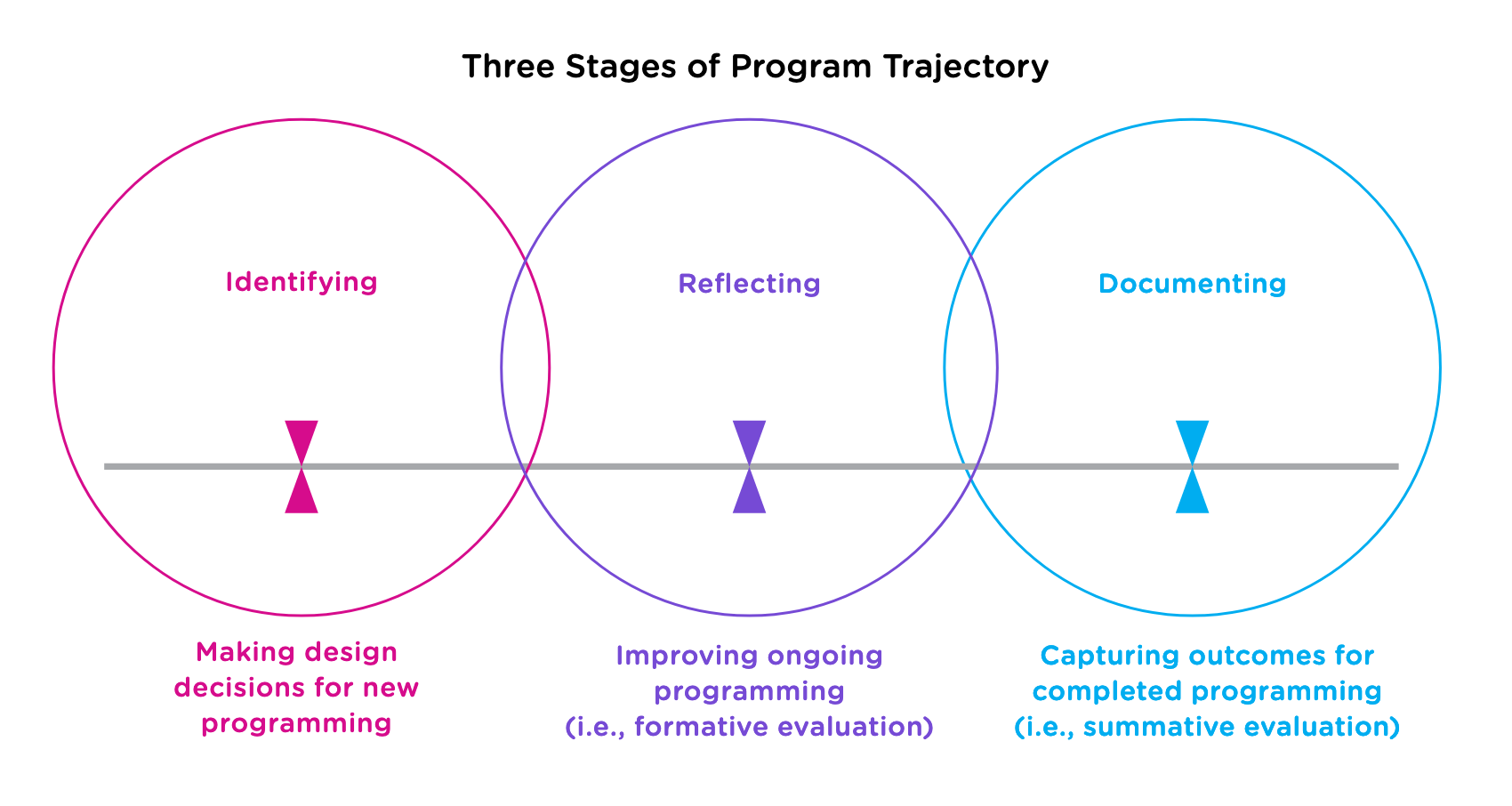What do these words mean?
Assessments and evaluations can help you answer questions about your library’s services, your community, and your youth. Although the terms “evaluation” and “assessment” are often used interchangeably in everyday usage, in many fields (such as education and community development) they are distinct concepts.
According to the Evaluating Library Programming Guide, data collection and analysis relating to a library program occurs in three different stages. Whether you want to conduct an assessment or a full evaluation depends on what part of the trajectory you are in, what questions you want to answer, and how many resources you want to devote to answering them.
- Identifying, where data is collected to help make decisions for new programming (see the Designing Connected Learning Services module to learn more about this stage)
- Reflecting, where data is used to improve ongoing programming (also called formative evaluation)
- Documenting, where outcomes are captured to evaluate the overall impact of a program (also called summative evaluation)

Source:
Evaluating Library Programming Guide; used with permission.
Assessment
An assessment is an activity that collects data to use as evidence to answer a question. For example, you may want to know what your young patrons think about your library’s teen space. In order to answer this question, you could conduct any number of assessments. You could observe the teens using the space, taking note of how they interact with the space and what they do in it. You could ask teens what they think directly by conducting interviews or distributing a survey. Whatever method you choose, you are collecting data (observations, statements from the interviews, or survey results) which you will analyze and use as evidence. Perhaps most of the teens like the furniture, but want more computers or a different layout. This evidence answers your original question — what do your teenage patrons think about the teen space?
Assessments can help you answer many different questions, such as:
- What knowledge or skill does a teen have in a particular area?
- What or how much did a teen learn from the program?
- How do teens feel about a particular topic?
- How many teens were helped?
- How quickly were issues resolved?
Evaluation
Evaluations can use the evidence from a variety of assessments to make a value judgment that helps you make a decision or make changes. For example, you may want to know how (if at all) you should change your summer programs for teens. You will need to use multiple assessments asking different sub-questions to help you address such a complex question, and you will need to holistically evaluate all the evidence you collect. Library staff, parents, and other patrons may have important input, and you’ll need to take other factors, like cost, into consideration.
Evaluations ask and answer a “how” or “why” question, such as:
- Was the impact of the program big enough?
- Why didn’t a project succeed?
- How can we make the partnership work better in the future?
The end product of your evaluation will be an argument to convince stakeholders of the conclusions you make, which are based on evidence you construct from the data you collect through assessments. Therefore, your assessments must be designed to provide you with good evidence to use in your argument. This process can be difficult enough in a formal learning setting, but informal and connected learning present additional challenges for the youth librarian who wishes to assess learning or evaluate an initiative. We will look at those challenges next.
Test Your Knowledge
Worksheet #2: Program Trajectory
Think about the teen services at your library. Where are you (or where could you be) conducting assessments and/or evaluations for identifying, for reflecting, and for documenting?
